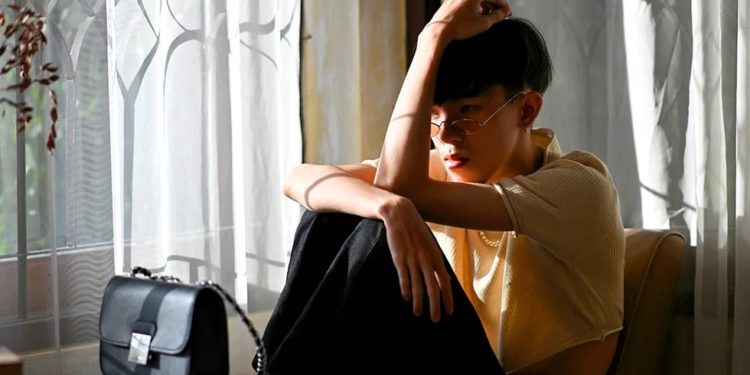According to a recent Centers for Disease Control and Prevention report released on Thursday, bisexual and transgender persons experience loneliness at higher rates than straight and cisgender adults.
Researchers studied relationships between mental health characteristics and loneliness as well as lack of social and emotional support by analyzing data from the 2022 Behavioral Risk Factor Surveillance System, which gathers information on health risk behaviors, preventive health practices, and health care access.
The percentage of participants who reported being lonely was highest among those who identified as bisexual (56.7{d38a898658503095d09ccca72b3373e8fa824aa4f0215737cc70c89fc7ca3936}) or transgender (ranging from 56.4{d38a898658503095d09ccca72b3373e8fa824aa4f0215737cc70c89fc7ca3936} to 63.9{d38a898658503095d09ccca72b3373e8fa824aa4f0215737cc70c89fc7ca3936} for transgender men, transgender females, and transgender non-conforming).
Lesbian and gay participants reported higher rates of loneliness (41.2 and 44.8{d38a898658503095d09ccca72b3373e8fa824aa4f0215737cc70c89fc7ca3936}, respectively).
According to the survey, bisexual and transgender people are nearly twice as likely to experience loneliness as those who identify as straight or cisgender, with lower shares of loneliness at 30.3{d38a898658503095d09ccca72b3373e8fa824aa4f0215737cc70c89fc7ca3936} and 32.1{d38a898658503095d09ccca72b3373e8fa824aa4f0215737cc70c89fc7ca3936}, respectively.
According to Dr. Adjoa Smalls-Mantey, a psychiatrist in New York, “we know that people that are part of the LGBTQ+ community often face isolation, but this study is important in that it highlighted the degree that they are isolated compared to people not part of that community,” she said.
The LGBTQ+ group was shown to have higher rates of stress, frequent mental distress, and a history of depression.
Compared to 12.6{d38a898658503095d09ccca72b3373e8fa824aa4f0215737cc70c89fc7ca3936} of straight adults, 34.3{d38a898658503095d09ccca72b3373e8fa824aa4f0215737cc70c89fc7ca3936} of bisexual adults reported feeling stressed out. In a similar vein, only 13.9{d38a898658503095d09ccca72b3373e8fa824aa4f0215737cc70c89fc7ca3936} of cisgender adults reported experiencing stress, compared to up to 37.8{d38a898658503095d09ccca72b3373e8fa824aa4f0215737cc70c89fc7ca3936} of transgender persons.
More than half of adults who identify as bisexual or transgender—54.4{d38a898658503095d09ccca72b3373e8fa824aa4f0215737cc70c89fc7ca3936} and up to 67.2{d38a898658503095d09ccca72b3373e8fa824aa4f0215737cc70c89fc7ca3936}, respectively—reported having experienced depression in the past. Only 19.4{d38a898658503095d09ccca72b3373e8fa824aa4f0215737cc70c89fc7ca3936} of adult straight people and 21.4{d38a898658503095d09ccca72b3373e8fa824aa4f0215737cc70c89fc7ca3936} of adult cisgender people, however, made the same report.
The study’s findings, according to Smalls-Mantey, did not come as a surprise to her because many of the LGBTQ+ patients she has treated have expressed feeling rejected or alone.
They [often] don’t feel comfortable coming out to those closest to them, so they could withdraw, not reveal that aspect of themselves, and stop interacting with people. Thus, it may occasionally be self-imposed,” she stated.
According to earlier studies, loneliness and isolation can have a negative impact on one’s health and raise one’s risk of heart disease and stroke. Furthermore, social isolation can increase the chance of dying young from any cause, such as obesity, smoking, and inactivity.
A weakness of the study was that it only included data from 26 states, which may have limited the generalizability of the findings to the adult population in the United States. Nonetheless, the authors stated that programs that target social and emotional support gaps and loneliness should be included in the treatment of LGBTQ+ people’s mental health needs.
“Providing access to health services that are affirming for sexual and gender minority groups and collecting data to address health inequities might help improve the delivery of culturally competent care,” the authors stated.
If LGBTQ+ people don’t get the support they need, Dr. Judith Joseph, a clinical assistant professor and board-certified child, adolescent, and adult psychiatrist at NYU Health, said that she advises them to make connections with people outside of their homes.
“Instead of just saying, that might be the person at the store if you go to make a purchase. She asked the store clerk, “Oh, thank you, and have a great day. So, how’s your day going?” “You can strike up a discussion with the coffee shop’s barista. Many of my clients who have cut people off because they were rejected by their parents find great relief from these little exchanges.”


